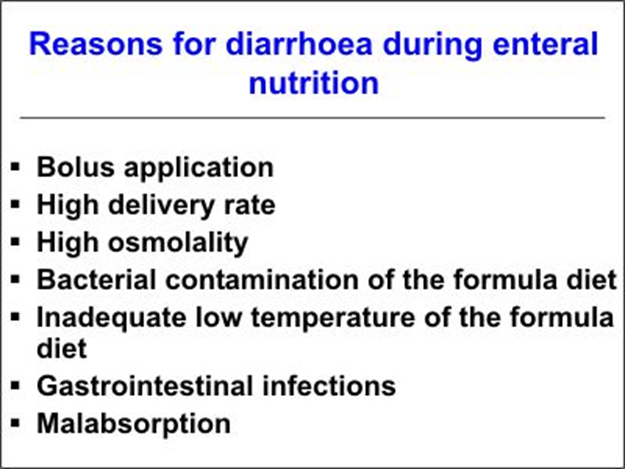ATI Custom PN Basic Care and Comfort assessment
ATI Custom PN Basic Care and Comfort assessment ( 50 Questions)
A nurse is caring for a client who is receiving enteral tube feedings of a diluted formula. Which of the following complications of enteral tube feeding should the nurse identify as a reason to administer diluted feedings to clients?
Electrolyte imbalancesAdministering diluted enteral feedings is not typically done to address electrolyte imbalances. Instead, monitoring the electrolyte levels in the patient's blood and adjusting the content of the enteral formula (such as adjusting the concentration of electrolytes) would be more appropriate.
DiarrheaAdministering diluted enteral feedings is a strategy that may be employed to prevent or manage diarrhea. High concentrations of nutrients can overwhelm the gastrointestinal tract, leading to diarrhea. Diluting the formula helps reduce the risk of this complication.
Constipation
Administering diluted enteral feedings is not typically done to address constipation. Management of constipation is more commonly achieved through adjustments in fiber intake, fluid intake, and medications as needed.
Delayed gastric emptyingAdministering diluted enteral feedings is not a standard approach for addressing delayed gastric emptying. Instead, adjustments in the rate of enteral feedings or specific interventions for delayed gastric emptying, such as medication or changes in positioning, would be considered.
A. Electrolyte imbalances
Administering diluted enteral feedings is not typically done to address electrolyte imbalances. Instead, monitoring the electrolyte levels in the patient's blood and adjusting the content of the enteral formula (such as adjusting the concentration of electrolytes) would be more appropriate.
B. Diarrhea
Administering diluted enteral feedings is a strategy that may be employed to prevent or manage diarrhea. High concentrations of nutrients can overwhelm the gastrointestinal tract, leading to diarrhea. Diluting the formula helps reduce the risk of this complication.
C. Constipation
Administering diluted enteral feedings is not typically done to address constipation. Management of constipation is more commonly achieved through adjustments in fiber intake, fluid intake, and medications as needed.
D. Delayed gastric emptying
Administering diluted enteral feedings is not a standard approach for addressing delayed gastric emptying. Instead, adjustments in the rate of enteral feedings or specific interventions for delayed gastric emptying, such as medication or changes in positioning, would be considered.

